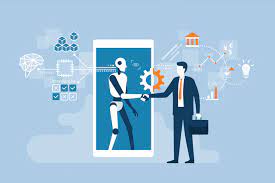
The Intersection of Technology and Ethics: Ensuring Responsible Use
By Adedayo Oyetoke, Published on: May 19th 2023 4 min, 664 word Views: 1224
Technology has become an integral part of our daily lives, from smartphones and social media to artificial intelligence and automation. While these advancements have brought many benefits, they have also raised important ethical questions about their impact on society and individuals. As someone who is interested in exploring the ethical implications of technology and ensuring that it is used responsibly, I believe that we must prioritize the development and implementation of ethical frameworks and guidelines that can help guide the responsible use of technology.
The Importance of Ethics in Technology
Ethics is a critical component of technology development and use, as it helps ensure that technology is developed and used in a way that is consistent with our values and principles. This is particularly important as technology becomes more integrated into our lives, with the potential to impact everything from our privacy and security to our social and economic well-being.
One of the most significant ethical challenges facing technology today is the issue of data privacy and security. As we share more and more personal information online, there is a growing risk of data breaches and misuse, which can have serious consequences for individuals and society as a whole. To address this issue, we must prioritize the development of robust data protection frameworks and guidelines that can help safeguard our personal information and ensure that it is used responsibly.
Another important ethical consideration in technology is the impact on employment and the economy. As automation and artificial intelligence continue to advance, there is a growing concern about the displacement of workers and the potential for widening economic inequality. To address this issue, we must prioritize the development of policies and programs that can help support workers and ensure that the benefits of technology are shared equitably.
The Role of Ethical Frameworks in Technology
To ensure that technology is developed and used responsibly, ethical frameworks and guidelines are needed that can help guide decision-making and ensure that technology is aligned with our values and principles. These frameworks can take many forms, from codes of conduct and best practices to regulatory frameworks and international agreements.
One example of an ethical framework in technology is the IEEE Global Initiative on Ethics of Autonomous and Intelligent Systems. This initiative brings together experts from across the technology industry to develop ethical guidelines and standards for the development and use of autonomous and intelligent systems, with the goal of ensuring that these technologies are aligned with human values and principles.
Another example of an ethical framework in technology is the European Union's General Data Protection Regulation (GDPR). This regulation sets out strict guidelines for the collection, use, and storage of personal data, with the goal of protecting individuals' privacy and ensuring that their data is used responsibly.
The Importance of Collaboration in Technology Ethics
Achieving meaningful progress in technology ethics requires collaboration and partnership across sectors and stakeholders. Governments, technology companies, civil society organizations, and academic institutions all have a role to play in advancing technology ethics and ensuring that technology is developed and used responsibly.
One example of successful collaboration in technology ethics is the Partnership on AI, which brings together leading technology companies, civil society organizations, and academic institutions to develop ethical guidelines and best practices for the development and use of artificial intelligence. This partnership has helped ensure that AI is developed and used in a way that is consistent with human values and principles, and has helped build trust and confidence in these technologies.
Conclusion
The intersection of technology and ethics is a critical issue that requires our attention and action. By prioritizing the development and implementation of ethical frameworks and guidelines, promoting collaboration and partnership across sectors, and ensuring that technology is developed and used responsibly, we can create a more equitable and just future for all. As we continue to advance technology and explore its potential, we must remain mindful of the ethical implications and work together to ensure that it is aligned with our values and principles.
